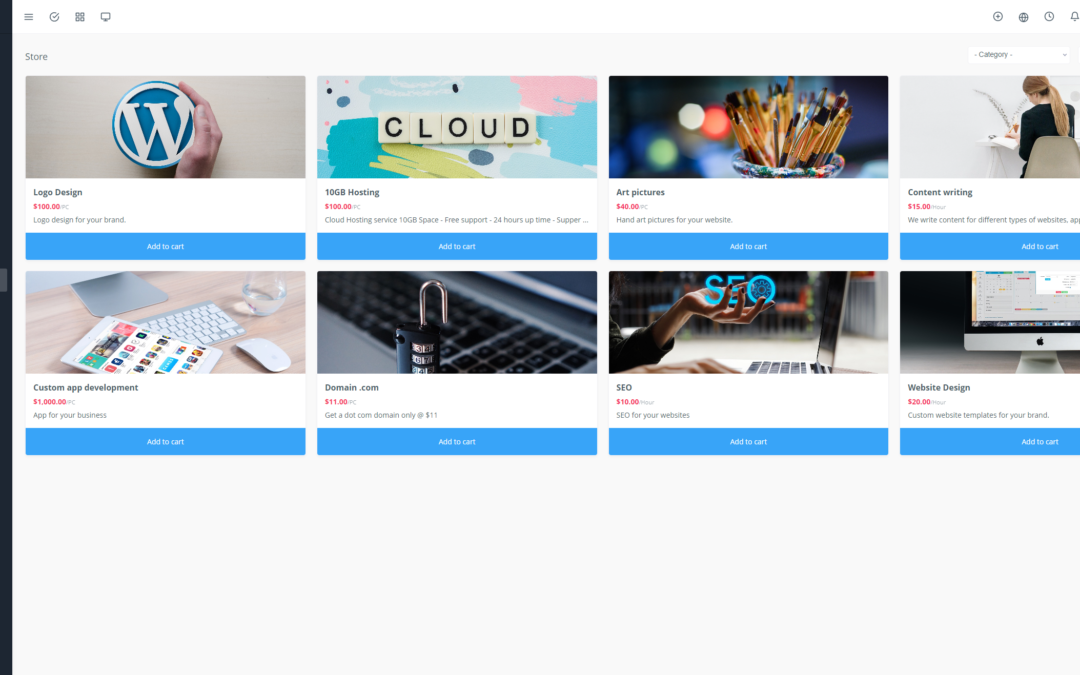Introduction to Yoneos ERP
Yoneos ERP is an integrated management software designed to simplify and optimize operations for educational institutions. It provides a comprehensive solution for managing all key aspects of school administration, from financial management to parent communication, to tracking student academic performance.
The Benefits of Yoneos ERP for Educational Institutions
Yoneos ERP can bring numerous benefits to educational institutions, enabling them to improve efficiency, transparency, and stakeholder satisfaction. Here are some of the key advantages:
Financial and Budget Management 💰
Precise Budget Control: Yoneos ERP enables tracking expenses and income, setting budgets, and effectively managing financial resources.
Process Automation: Simplifying administrative tasks related to invoicing, payment management, and financial reporting.
Transparency and Auditability: Offering complete traceability of financial transactions and fund movements.
Enrollment and Student Management 👨🎓👩🎓
Simplified Enrollment Process: Enables easy management of enrollment, admissions, and student records.
Comprehensive Student Tracking: Provides a complete overview of information on each student, including their grades, absences, extracurricular activities, etc.
Effective Communication with Parents: Facilitates communication between the school and parents through online platforms to share information and updates.
Academic Performance Tracking 📈
Student Performance Analysis: Enables teachers to track student progress, identify areas for improvement, and adapt teaching programs accordingly.
Simplified Evaluation and Grading: Facilitates the input, calculation, and analysis of grades, allowing for the generation of comprehensive performance reports.
Progress and Development Tracking: Offers precise tracking of student progress throughout their academic journey.
Human Resources and Staff Management 🧑🏫
Effective Staff Management: Managing salaries, leave, absences, and staff evaluations.
Time and Task Tracking: Simplifying the tracking of staff working hours, assigned tasks, and performance.
Staff Training and Development: Facilitating the organization and management of staff training and development programs.
Communication and Collaboration Between Stakeholders 🤝
Unified Communication Platforms: Allowing all stakeholders (students, parents, teachers, administrative staff) to easily connect and communicate.
Real-time Information Sharing: Facilitating the sharing of important information, school reports, events, and updates.
Increased Collaboration: Fostering better collaboration between teachers, parents, and students.
Library and Resource Management 📚
Resource Cataloging and Management: Effectively managing book collections, digital resources, and library equipment.
Online Access to Resources: Allowing students and teachers to access library resources anytime, anywhere.
Loan and Return Tracking: Managing loans, returns, and overdue items in an automated manner.
Administrative Task Automation 🤖
Process Simplification: Automating repetitive and time-consuming tasks, such as data entry, report generation, and enrollment management.
Reduction of Manual Errors: Minimizing human errors through automation and integrated checks.
Time and Energy Savings: Freeing up staff to focus on more important and stimulating tasks.
Improved Operational Efficiency 🚀
Process Optimization: Yoneos ERP allows for the optimization of institution processes, reducing waste and inefficiencies.
Improved Decision-making: Providing accurate and up-to-date information for better decision-making.
Increased Productivity: Boosting staff productivity and improving work quality.
Facility and Infrastructure Management 🏢
Building and Equipment Tracking and Management: Managing the institution’s physical resources, including classrooms, labs, and equipment.
Maintenance and Repairs: Facilitating the planning and management of maintenance and repair operations.
Energy Resource Management: Optimizing energy consumption and reducing costs.
Integration with Existing Educational Systems 🔌
Compatibility with Different Systems: Easily integrates with existing educational systems, such as learning management systems (LMS) and grade management systems.
Seamless Data Exchange: Enabling a smooth flow of data between different systems for centralized management.
Minimized Migration Efforts: Reducing the effort needed to migrate to Yoneos ERP by integrating with existing systems.
Data Security and Privacy 🔒
Protection of Sensitive Data: Providing robust security measures to protect sensitive student, staff, and institution data.
Compliance with Regulations: Adhering to data privacy regulations and standards, such as GDPR.
Access and Authorization Control: Offering strict access and authorization control to ensure data confidentiality.
User Support and Training 👨💻
Technical Support: Providing comprehensive technical support for users, including troubleshooting and updates.
Training and Documentation: Providing comprehensive training and documentation to help users master Yoneos ERP.
Online Resources: Making available online resources, such as user guides, tutorials, and discussion forums.
Use Cases and Real-World Examples
Example 1: A high school uses Yoneos ERP to manage enrollment, academic performance tracking, parent communication, and financial resource management. The system has allowed the school to improve the efficiency of administrative processes and provide better service to students and parents.
Example 2: A university uses Yoneos ERP to manage enrollment, courses, grades, human resources, and research. The university has seen a significant improvement in collaboration between departments and better data management.
Outlook on the Future of Yoneos ERP in Education
The future of Yoneos ERP in education is promising. With the evolution of educational technologies and the growing need to improve the efficiency and transparency of educational systems, Yoneos ERP is well-positioned to play a crucial role in transforming education.
The Cost and Return on Investment of Yoneos ERP
The cost of Yoneos ERP varies depending on the specific needs of each institution. However, it’s important to note that the return on investment (ROI) can be significant, thanks to cost savings, increased efficiency, and improved education quality.
Comparison with Other Educational ERP Solutions
Yoneos ERP stands out for its flexibility, user-friendliness, and ability to adapt to the specific needs of educational institutions. It offers a complete and integrated solution, unlike other solutions that can be more specialized.
Integration with Emerging Educational Technologies
Yoneos ERP can integrate with emerging educational technologies, such as artificial intelligence (AI), machine learning (ML), and data analytics, to enhance the effectiveness of educational processes.
The Challenges and Opportunities of Adopting Yoneos ERP in Education
Adopting Yoneos ERP can present challenges, such as staff training, data migration, and resistance to change. However, the opportunities for transformation and improvement are significant.
Conclusion
Yoneos ERP offers a comprehensive and powerful solution for educational institutions seeking to improve efficiency, transparency, and the quality of education. By adopting Yoneos ERP, educational institutions can free up staff, improve the student experience, and create a more effective and collaborative learning environment.

